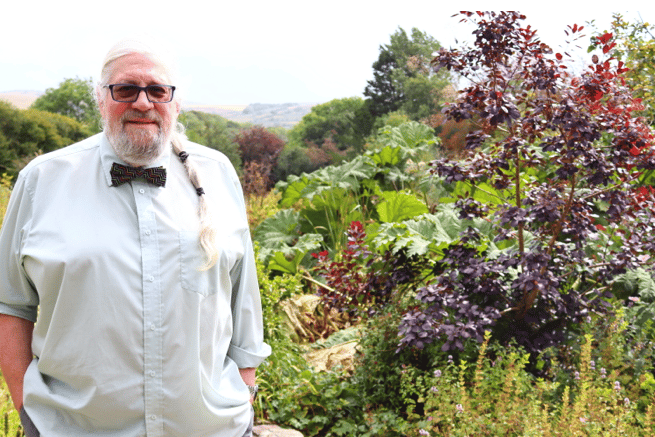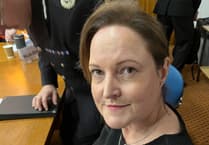THE first 100 days for those newly in charge of vital public services can be crucial.
This initial period allows the new leadership to set a fresh tone and it provides a revamped opposition with time to decide where it most needs to hold the administration to account.
But there can also be a steep learning curve, not only for newly elected members, but also for those who might be highly experienced at criticising decisionmakers but now find themselves behind the steering wheel.
That’s essentially how Devon’s local elections in May shook out; the established Conservative leadership was usurped by a Liberal Democrat surge, albeit not one large enough to win the party an outright majority.
The Lib Dems struck an agreement with the Green and Independent group, taking them over the line for a notional majority, while their biggest opposition group is now Reform UK, which has 17 members having had no representation on County Hall prior to May’s poll.
With four in every five councillors of the 60-seat chamber being new to County Hall, and many having never been a councillor before, there’s undeniable pressure on an administration in charge of a council with more than £500 million of debt, a children’s services department rated ‘inadequate’, and an unwieldy pothole backlog on one of the country’s largest road networks.
And that’s without local government reorganisation, the mammoth task of merging Devon’s 11 councils into fewer but larger revamped versions.
So with such a radical shift in the political make-up at County Hall, how has the first 100 days gone since Devon’s new cohort officially became councillors on 22 May?
► Emerging friction
A key area of friction appears to be over whether the Liberal Democrat pledge to be more cohesive and to embrace ideas from across the political spectrum has truly been honoured.
The 10-person cabinet, which is the council’s decision-making body, does include one Green Party member, but opposition parties don’t feel that’s far enough.
“Julian Brazil, who leads Devon County Council for the Lib Dems, said he wanted to bring about change and work together, but four months down the line and I’m still waiting and holding my breath,” said Councillor Michael Fife Cook (Yelverton Rural), who leads the Reform UK group at the council.
“Half of Devon voted Reform or Conservative, yet there is not one member from those parties on the cabinet; people voted for a difference of opinions so we can find the best solutions.”
He added that Reform was a “very honest party” and “didn’t mind calling out” the other parties when they hadn’t stuck to their word.
“They’re not using any of our brains,” he added. “The Lib Dems, Greens and Independents are deciding where this council is moving and where the money is being spent.”
Asked about the most recent Conservative administrations, which did not have members of other parties on their cabinet, Cllr Fife Cook said they had a “moral right” not to because of their large majority at the time.
“The Lib Dems don’t have that, and have only gained it by working with the Greens and Independents,” he said.
Councillor Andrew Leadbetter (Wearside and Topsham), who leads the Conservative group, agreed the notion of collaboration “hasn’t happened” to the extent he’d hoped and that his party had been offered “virtually nothing” in the way of committee chair or vice-chair positions.
He also criticised the dual roles several cabinet members hold, such as being district council leaders and county council portfolio holders. Three run district councils as well as holding county cabinet roles.
“Personally, I think running a district council is a full-time job,” he said.
“Responsibility has not been spread across parties in the way we had hoped for, and Cllr Brazil spoke warmly about it, but he has gone into the administration with the Greens and Independents.”
Cllr Leadbetter acknowledged that it was “still early days”, especially given the summer break, but claimed he “doesn’t see much change”.
Cllr Brazil (South Hams) said he felt his administration had been “as open as it can”, highlighting recent workshops for all councillors on the forthcoming strategic plan, which will provide a list of goals and aspirations for the coming years.
He also noted that even though some in his party had reservations about handing a key scrutiny chair role to a Reform member, “I said it had to be them because they are the opposition”.
Cllr Helen Brown, the Reform UK member for Exmouth, is the chair of the Corporate Infrastructure and Regulatory Services Committee, but the top two positions on the other two scrutiny committees that oversee children’s services and adult social care respectively, are held by Lib Dems, Greens, or Independents.
► Power broker
The sole non-Lib Dem cabinet member, Councillor Jacqi Hodgson (Totnes & Dartington) is the leader of the Green and Independent group, and her presence at the top table had been mimicked at South Hams District Council, which Cllr Brazil previously led before stepping down after taking the top job at County Hall. Her group’s support of the Lib Dems was also vital in the creation of the minority administration.
She said it was her “dream job” to be offered the climate change and biodiversity portfolio, adding it was “an area that has been of active interest to me professionally and personally for 40 years”.
“I think the whole emphasis of the new administration is more about supporting the public,” she said.
“Whereas the previous administrations were more about supporting the government. We’re much more bottom-up and people-facing.”
Cllr Hodgson, who holds a degree in environmental science, added that she was hopeful to make an impact individually, but also as an administration.
“We’ve got a climate and wildlife emergency so we have to speed things up to make a difference,” she said.
“I feel there is a lot for me to tackle, and I’m really enthusiastic to get going with it, and the other cabinet members are really passionate about their roles too.”
In terms of opposition parties, she added that they were welcome to attend cabinet and raise points or scrutinise decisions, but that it was important to “know what they do want and not just what they don’t”.
► Resistant to change?
While elections mean a change in politicians, they don’t automatically mean a change in employed council officers.
Just like members of the civil service will continue through different Westminster administrations, the same is true for council officers.
This creates a risk that the status quo becomes difficult to change, and the implementation of new ideas tricky.
Opinions are split here.
While the Green Party’s Cllr Hodgson said there was “certainly a willingness” among officers to listen to her ideas, and that she was being treated “as someone who knows what they’re talking about”, others had issues with the way certain systems worked.
Reform UK’s Cllr Fife Cook grumbled at the so-called ‘portal’, a system that councillors are supposed to use to log issues, such as those brought to them by constituents.
“Our party thought the portal was against us,” he said, highlighting instances where problems were logged but seemingly never dealt with.
“I initially put five things into the portal and each one was an uphill struggle,” he said.
“But if I pick up the phone, or speak to the people who are involved or who can help, it gets solved in five minutes.”
Cllr Fife Cook also said he felt the system of encouraging councillors to complain if their portal query hadn’t been dealt with properly was also misguided.
“It’s the wrong attitude,” he said.
“The right one is to come back and discuss what isn’t being done correctly and to try and serve the public.
“I get enjoyment from solving problems, and if we as councillors can do that, then our time is not being wasted but I think people get institutionalised in many council departments.”
He added he felt some departments were really good, but had concerns over others.
“Those failing are doing so spectacularly, and that’s a real problem,” he said.
Cllr Brazil said he was “pushing at an open door” when it came to working with county officers, but acknowledged there could be differences of opinion.
“We want to do it our way and some might not agree, but we are saying it is our way and they have to do it,” he said.
“If you have been doing things the same way for a long time, it becomes stagnant, stale and complacent, and officers have welcomed a new sense of ambition, passion and drive with the new council.”
► Critical eyes
With Cllr Brazil having been a vocal critic of the Conservative administration when it was in power, it’s perhaps inevitable that all eyes will be on his actions now he is in charge.
Conservative leader Cllr Leadbetter said he and his party had spent time discussing the areas they wanted to keep under greatest scrutiny, and also working out the best way to be an effective opposing voice after being in control for several consecutive administrations.
“We’re working out how we can hold the administration to account,” he said. “We definitely are training ourselves to do that.”
Reform UK is the biggest single opposition party, and its leader Cllr Fife Cook said many of his members had never been councillors before and so were having to hit the ground running.
“I’ve given my members four months to learn their jobs and now they are finding their feet,” he said.
“Now I am saying it is time to bring about change and bring the fight. All we’ve got to do is show the people of Devon they have not got what they voted for.”
He added he had been “elected to tell the truth and to bring about change”.
“What I want to change is for the council to be totally open,” he said.
“We need to work together, not just say it, and however unpleasant the truth is, we have to use it and build on it.”
Cllr Fife Cook acknowledged his party had experienced “interesting times” in its short tenure in Devon, having already dropped one councillor. The Pinhoe and Mincinglake member, Councillor Ed Hill, reported fellow member Neil Stevens to the police over potential election campaign spending limit breaches.
Subsequent events related to an open letter sent by Cllr Hill led the party to expel him, confirm that no action would be taken against Neil Stevens, and outline that Cllr Stevens was submitting an application for relief in respect of his election expense return. Cllr Hill has appealed the decision to expel him from the party.
► Funding pressures
Cllr Brazil said in spite of the council’s debt levels, the amount per head of population was still below Plymouth’s meaning there “could be headroom” for some more borrowing.
But he stated the emphasis would be on investments that would save the council money over the long term, such as building more of its own children’s homes so that it isn’t hostage to private sector fees for such services.
He also wants to bring more services back in-house, such as potentially highways workers, because “outsourcing should not be the go-to position”.
The leader has already publicly grumbled about the amount of cash he expects to get from government, fearing Devon could be one of 16 local authorities to get less funding from Whitehall.
There’s also an emphasis, which is an echo from the end of the previous administration, to work more collaboratively with partner organisations, such as the NHS and schools.
Interestingly, Cllr Brazil has opted to take on a portfolio role, focused on education and learning, and said he had visited as many schools and academy trusts as he could since taking on the position to better understand the issues and how they might be solved.
First elected in 2005, Cllr Brazil has spent a long time in opposition before gaining power. His long tenure is beaten only by Cllr Leadbetter, now the notional ‘father of the house’.
“My only advice [for the new administration] is to listen to people who have experience,” he said.
“I’m not the only one, as people like Cllr Andrea Davis [elected in 2005] have experience too.
“I would listen to the old hands as we’re all here to do the best for Devon.”





Comments
This article has no comments yet. Be the first to leave a comment.